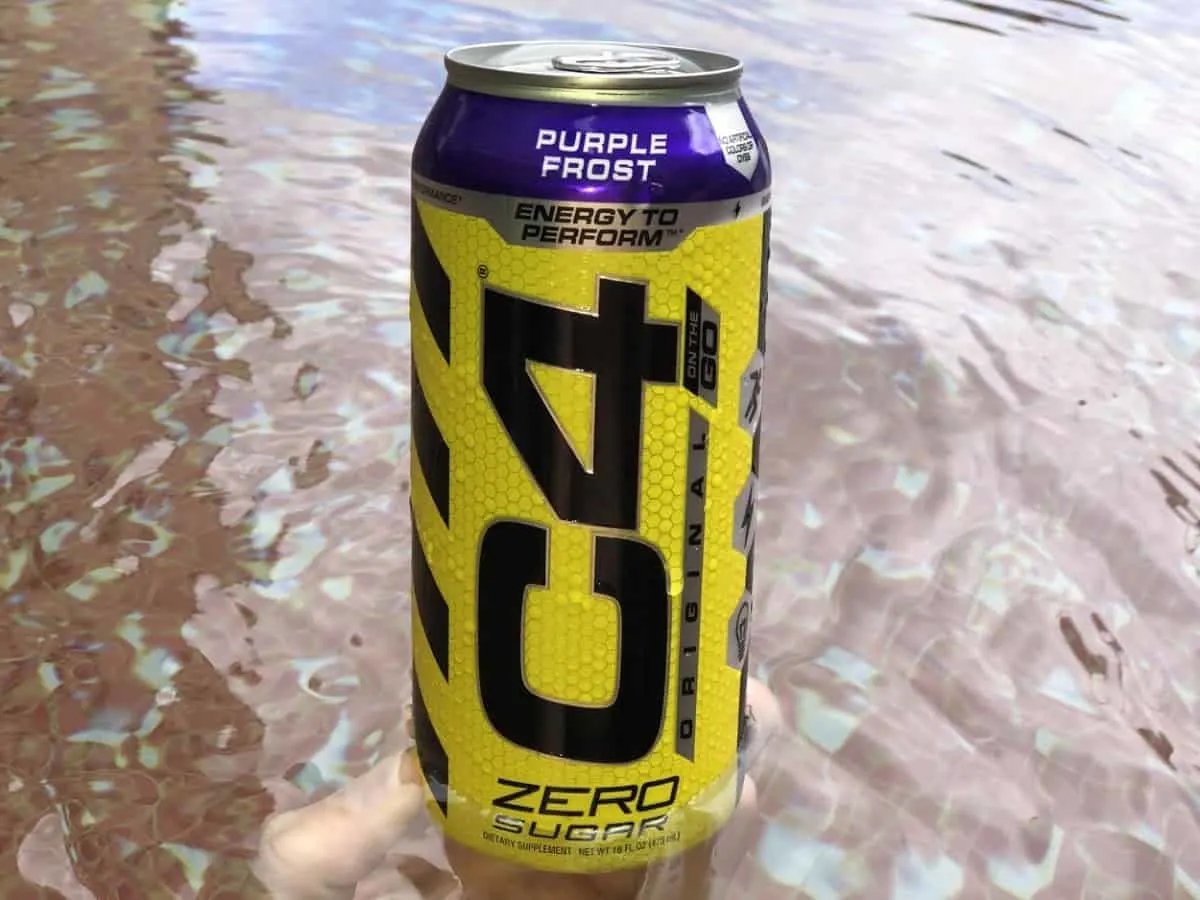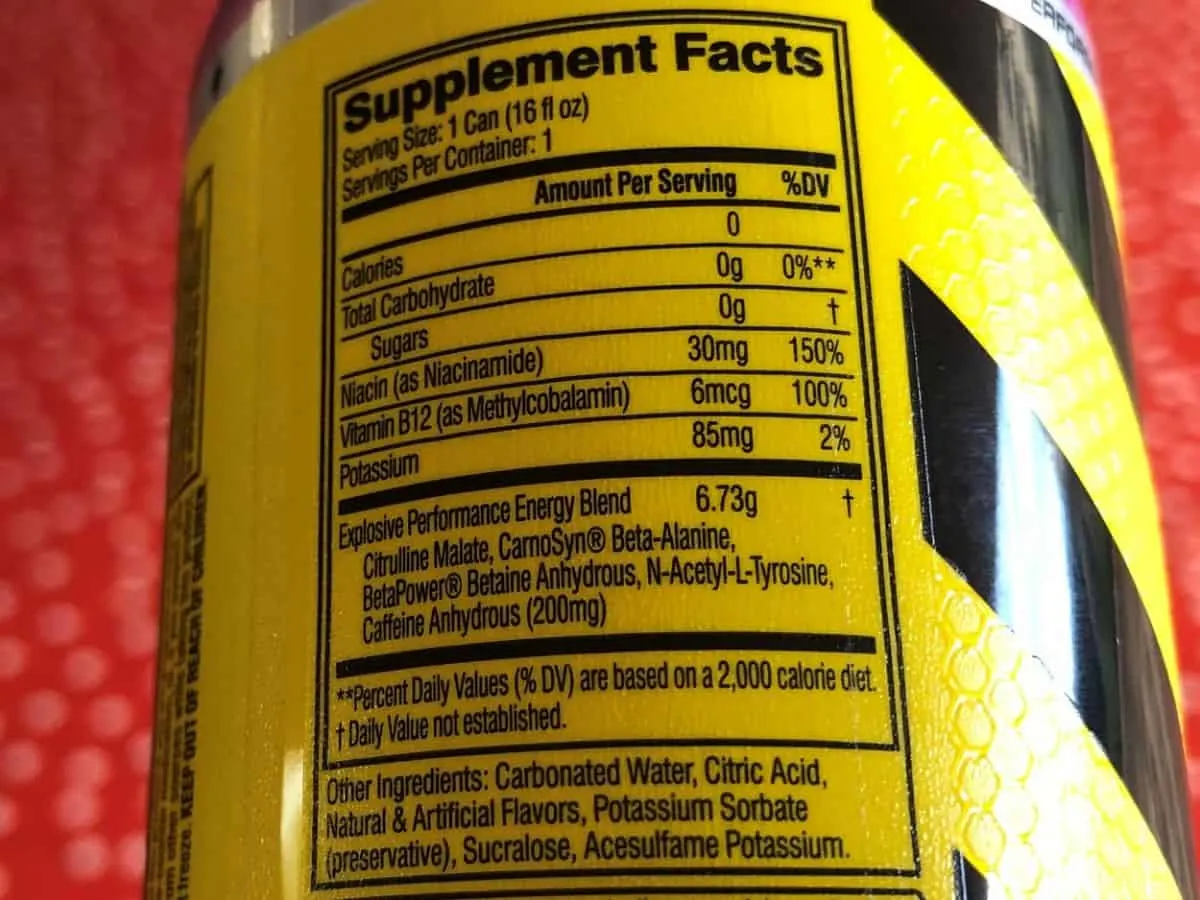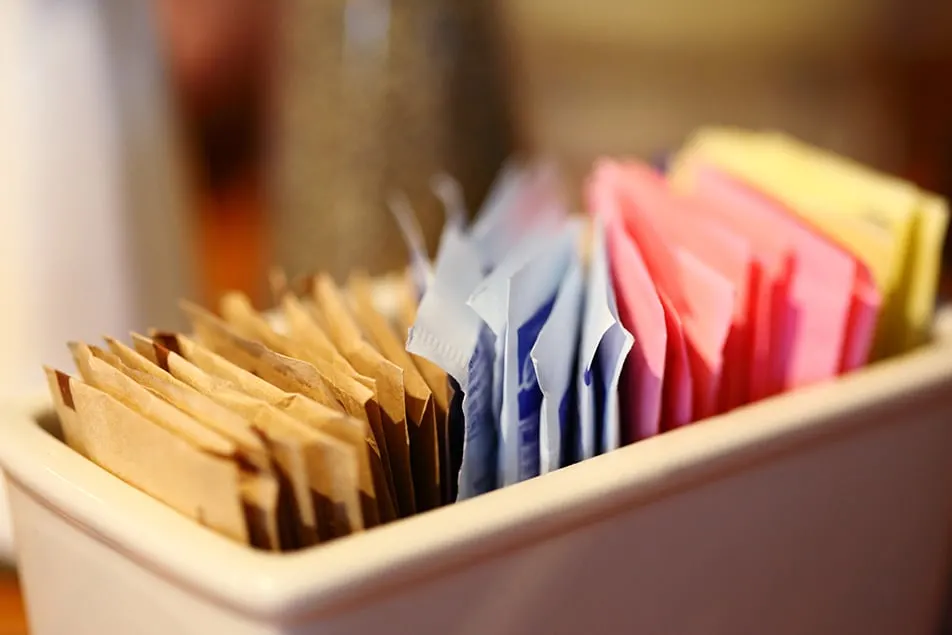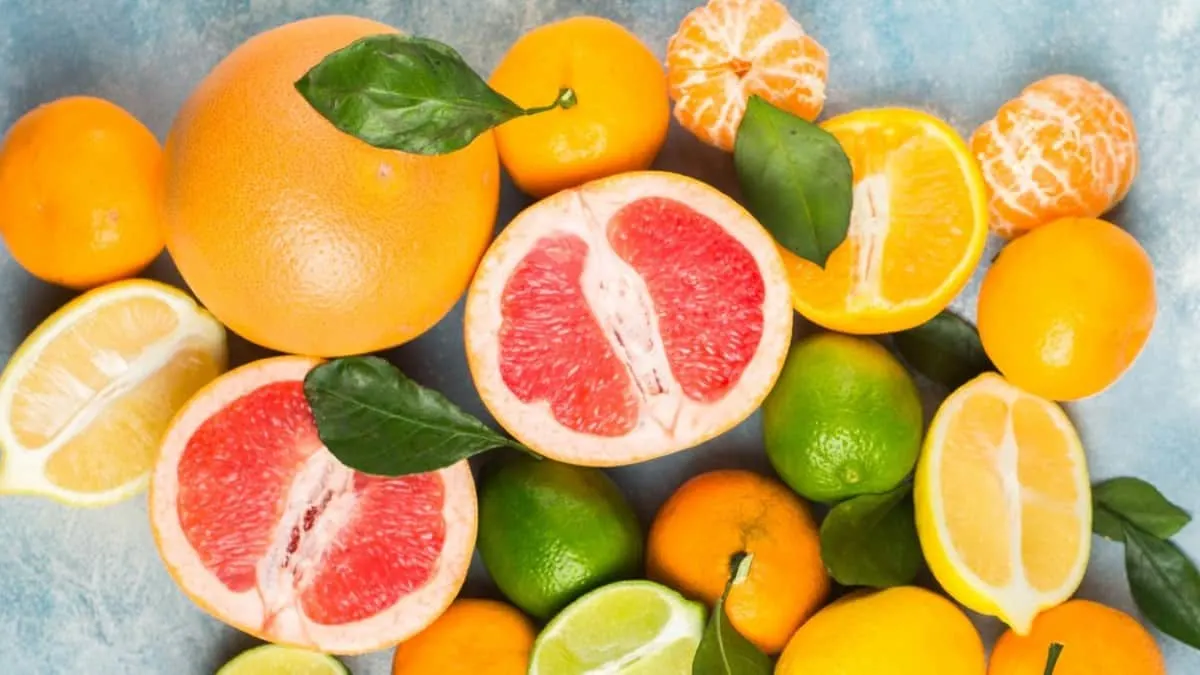C4 is one of the newer brands in the market. It’s also been gaining traction as a good pre-workout and a solid option for customers who want to limit their calorie and sugar intake.
Most would assume it’s good for dieting and in a way, they’re right but there’s more to that than just sugar and fewer calories.
Given that many are now adapting a gluten-free diet, can an energy drink like C4 be a good substitute for other gluten-free drinks?

C4 Energy should be relatively safe for those who are on a gluten-free diet. But to be specific, while C4 doesn’t have gluten as an active ingredient, it could have trace amounts of it via cross-contamination.
For more answers, here’s an article discussing on C4’s gluten-free ingredients and other benefits.
Contents
What does Gluten-Free Mean?
Being gluten-free means excluding any and all sources of gluten from your diet.
Gluten is a protein family that can be found in grains like barley, wheat, and rye. So any product made from any of those can be expected to contain gluten (unless stated otherwise).
It’s also the reason bread rises when baked and has a chewy texture when eaten.
As part of the protein family, gluten has two main protein components: glutenin and gliadin. Of the two, gliadin is the one responsible for the side effects some people experience when eating gluten.
Reasons for choosing a gluten-free diet can vary. Some people do it to lose weight or believe that it will benefit one’s health. Others go gluten-free because they have a health condition that requires them to do it, such as celiac disease, a wheat allergy, or non-celiac gluten sensitivity.
How To Be Gluten-Free?
Switching your diet can bring changes in your body. This is especially true for those who want to go gluten-free. Fortunately, there are a few things going gluten-free can boil down to.
Read the Food Labels
This is the most important thing when it comes to keeping a preferred diet. When trying to cut down on gluten, the first thing is to learn food sources that have no gluten.
When grocery shopping, you should learn how to read the label. Most brands put a gluten-free label on their products for easier distinction. Some groceries have a gluten-free aisle you can access.
To avoid consuming foods that contain gluten, here’s a list of food sources to avoid:
- Bread
- Cookies
- Cake
- Beer
- Ale
- Candies
- Cereals
- Gravy
- French fries
- Communion wafers
- Pastas
- Soy sauce (wheat)
- Malt products (barley)
Also remember to make sure the labels on whatever you buy explicitly say the product is “gluten-free.”
Some companies use the label “no gluten-containing products” to cover the fact that they didn’t test any of the ingredients for gluten. This label also makes it more likely that the product in question has trace amounts through cross-contamination.
What’s Cross-Contamination?
Cross-contamination is when a product that doesn’t normally have gluten turns out to have small amounts in it. This is because it was handled in the same place or with the same tools that touched wheat products.
This can easily be avoided by ensuring that you clean your tools and cooking spaces properly. Plus, keeping your gluten-free products in separate containers from your non-gluten-free things.
Preventing cross-contamination is extremely important for anyone with Celiac disease since even just 1/50th of a teaspoon can cause intestinal damage.
As far as energy drinks are concerned, many of them are gluten-free by default. That means they don’t have any ingredients that are known to be derived from wheat or other grains that have gluten.
However, they have a risk of contracting trace amounts because the manufacturer used tools or spaces that were also used to process some kind of wheat product.
C4 Energy Drink Ingredients

There are several groups of ingredients that make up a single serving of C4 Energy. These are the following:
Explosive Performance Energy Blend:
- Beta-alanine
- Arginine nitrate (NO3-T)
- Caffeine anhydrous
- N-acetyl-l-tyrosine
Other ingredients:
- Carbonated water
- Potassium Sorbate (preservative)
- Sucralose
- Acesulfame Potassium
- Citric Acid
- Natural flavors
- Artificial flavors
Is Caffeine Gluten-Free?
On its own, caffeine is gluten-free since it comes from coffee beans. The same can also be said for coffee for as long as it’s served black.
As for energy drinks, most of their caffeine content is synthesized. If it’s not synthesized from beans, then it comes from guarana. Guarana is a Brazillian fruit that’s known for being a good source of caffeine both when eaten as is and when used as an energy drink ingredient.
In essence, caffeine by definition cannot contain gluten, as it itself
Is Tartaric Acid Gluten-Free?
Tartaric acid is a naturally occurring substance that’s found in wines, fruits, and plants. It’s used as a food additive to flavor products in the food industry. It’s widely used in gluten-free products.
Since it’s acidic, tartaric acid is known for its sharp, sour flavor. Sometimes, it’s also used as a preservative in things like soft drinks, fruit jellies, and gelatin. You can also find it in hard candies and baking sodas that make bread rise.
It’s manufactured by heating the by-products of wine-making with calcium hydroxide (a base). This creates a precipitate that gets treated with sulfuric acid to create what we know as tartaric acid. After that, it’s purified for commercial use.
Are Natural Flavors Gluten-Free?
Natural flavors refer to flavors that were derived from plant or animal sources. Most of the time, these come from fruits, spices, and vegetable juice. So typically, natural flavors or additives in food products are gluten-free.
However, they can sometimes come from wheat, barley, or any other sources. The way to tell this is to look at the labels and see if there’s a warning label that says it contains wheat, barley, or rye.
Are Artificial Flavors Gluten-Free?
Artificial flavors are synthesized from petroleum and other products that are normally non-edible. Given this fact, it’s a gluten-free ingredient that’s widely used in energy drinks like C4 Energy.
Although some artificial flavoring can give a sweet taste, they’re a different ingredient from artificial sweeteners. C4 Energy doesn’t have artificial flavors as it’s made with natural flavors that come in Icy Blue Razz, Black Cherry, Freedom Ice, Electric Sour, Cotton Candy, Peach Mango Nectar, and many more.
Are Artificial Sweeteners Gluten-Free?

C4 Energy uses artificial sweeteners namely Sucralose (Splenda) and Acesulfame Potassium are gluten-free.
Artificial sweeteners are a kind of sugar substitute that’s used to substitute for sugar. This is done by manufacturers and home cooks alike in order to reduce (or avoid) sugar consumption.
The reason this happens varies. Companies typically want to make their products appealing to as many people as possible. So they cut out as much caloric and sugar content as they can in order to reach people who want to lose weight.
Individuals sometimes use artificial sweeteners as a way to prevent health conditions like diabetes. As mentioned, it’s also possible that a person would want to use artificial sweeteners to lose weight since artificial sweeteners are considered calorie-free.
As for how they’re made, Splenda is made by replacing three groups of hydrogen-oxygen molecules with chlorine molecules. The result is a chemical structure that prevents the digestive tract from breaking it down, which is why it’s considered safe.
Acesulfame Potassium is made by combining acetoacetic acid with potassium. Once it’s been synthesized, it appears to be a crystalline powder with a sour aftertaste despite being used for sweetening food. This aftertaste is why it’s often mixed with Splenda or other artificial sweeteners when used.
Is Arginine Gluten-Free?
Arginine is an amino acid that turns into nitric oxide (NO). Nitric Oxide is a powerful neurotransmitter that helps blood vessels relax and improves circulation. It’s a gluten-free ingredient found in C4 Energy.
Because of this, it’s sometimes used as a way of lowering blood pressure. However, there isn’t enough information to make any strong recommendations as to how it’s supposed to be used yet.
Is Citric Acid Gluten-Free?

Citric acid is found naturally in citrus fruits. The most famous of these are lemons and limes. When made artificially, it’s also used as a food additive such as in C4 Energy, and is 100% gluten-free.
In the food industry, it’s used to preserve, flavor, and boost acidity in both food and beverages.
As a nutrient, on the other hand, it helps you metabolize energy better and improves your nutrient absorption. Some even believe it could be a good treatment for kidney stones. This is because citric acid breaks apart the stones that already exist and prevents the formation of new ones.
Citric acid is also an antioxidant that fights the effects of free radicals that cause cellular damage in the body. Free radicals cause oxidation reactions in the body, which can pile up and cause illnesses like cancer, diabetes, and arthritis later on.
Final Thoughts
C4 doesn’t have any gluten-free ingredients but may have undergone cross-contamination during the manufacturing process.
A seller from Nutrabolt brands confirmed this on Amazon when asked by a customer back in 2016. According to them, C4 might have trace amounts of gluten if it was manufactured in the same locations that were used to handle gluten-based products.
If you want a more detailed breakdown of C4’s ingredients and brand, here’s a video to help you out.
CaffeineMan also does a taste test of some of the flavors at the end. So if you’re planning your first purchase of C4, I recommend watching until the end.
As for the gluten-free diet itself, I think it can be a decent way to keep a healthy diet if planned well, although it is entirely unnecessary to cut out gluten completely if you don’t have any gluten-related allergies or illness.
However, I’ve also noticed that commercial gluten-free products tend to be more expensive than non-gluten-free products.
It’s advised to get yourself checked first for gluten sensitivity by a doctor before deciding to go gluten-free. You can also consult a dietician and learn more about the implications a gluten-free diet (or any kind of diet) would have on your health.
